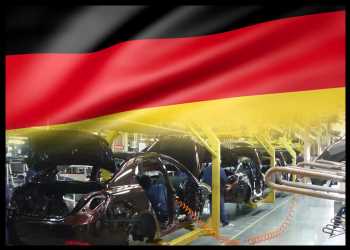German Factory Orders Rebound In December
Germany’s factory orders recovered at the end of the year 2022, but the rebound was driven by a huge growth in the big-ticket orders, suggesting a weaker contribution to the economic growth going forward.
Factory orders grew 3.2 percent on a monthly basis in December, partially offsetting the revised 4.4 percent decline in November, data published by the statistical office Destatis revealed Monday. Orders were forecast to climb moderately by 2.0 percent.
Excluding large-scale orders, there was a 0.6 percent fall in manufacturing orders, data showed.
The trend in orders continues to point clearly downwards, especially as the increase in December was due solely to an unusually large number of big ticket orders, Commerzbank economist Ralph Solveen said.
As backlog of orders appear to be shrinking, industry is more likely to slow the German economy this year, the economist noted.
In January, the German government said the economy is set to avoid a recession this year with an annual growth of 0.2 percent.
On a yearly basis, new orders in manufacturing plunged 10.1 percent after a 10.2 percent decline in November. The development throughout the year 2022 was in contrast to robust recovery in 2021.
Domestic orders increased 5.7 percent from the previous month, while foreign orders grew only 1.2 percent. Within foreign demand, orders from the euro area advanced 9.8 percent and that from the rest of the world fell 3.8 percent.
Data showed that the overall increase in manufacturing orders was driven by major orders for the manufacture of electricity distribution and control apparatus. Accordingly, intermediate goods orders grew 9.7 percent.
At the same time, orders for capital goods remained unchanged in December, while consumer goods demand slid 3.3 percent.
Manufacturing turnover decreased 1.7 percent on a monthly basis in December, in contrast to the 2.5 percent increase in November.
Compared with December 2021, turnover was 1.9 percent higher.
Elsewhere, survey results from S&P Global showed that Germany’s construction sector continued to contract in January amid continued strain on demand from high prices and rising interest rates.
The construction Purchasing Managers’ Index, or PMI, rose to 43.3 from 41.7 in the previous month. The index remained firmly below the 50.0 threshold that separates growth from contraction.
Source: Read Full Article

